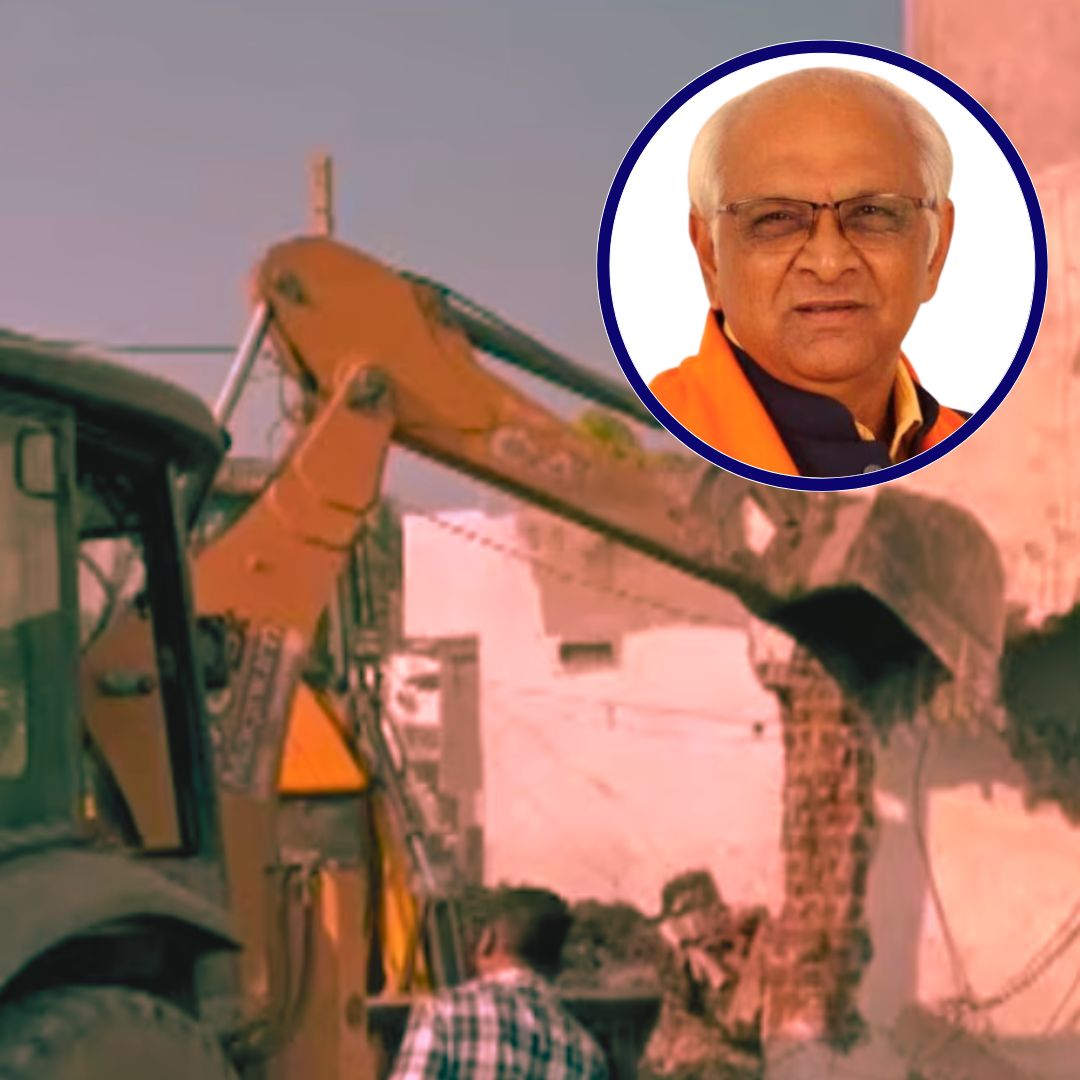In a significant enforcement action, authorities in Jamnagar, Gujarat, demolished the homes of Hussain Gulmad Sheikh, one of the accused in a brutal gang rape case. The demolition occurred on Saturday as part of a crackdown on illegal constructions, with the accused having built four bungalows on approximately 2,500 square feet of municipal land without proper permissions. Local officials emphasized that this operation aims to restore community safety and trust in the justice system, reflecting a broader trend of swift punitive measures against serious crimes.
Details of the Demolition
The bulldozer action unfolded in a tense atmosphere as local residents gathered to witness the event. Hussain Gulmad Sheikh, along with another accused whose identity has not been disclosed for legal reasons, was alleged to have committed the crime earlier this month, leading to widespread outrage and calls for justice from the community.
Municipal officials confirmed that the structures were built illegally and that their demolition was necessary to uphold the rule of law. “These structures were not only unauthorized but also a source of fear for many residents,” remarked a senior municipal officer involved in the operation. “We are committed to ensuring that our city remains safe and that justice is served.” The demolition has sparked mixed reactions; while some community members see it as a necessary step towards justice, others express concerns about the implications for due process.
Background Context
This incident is part of a growing trend across India where authorities have resorted to demolishing properties linked to criminal activities as a means of deterrence. Such actions have been met with both support and criticism; proponents argue they serve as a strong message against crime, while opponents raise alarms about potential violations of human rights and due process. The Jamnagar case has intensified discussions around women’s safety in Gujarat, particularly in light of recent high-profile cases of sexual violence that have ignited public protests and demands for stricter laws.
Community leaders have voiced their support for swift action against perpetrators but also caution against measures that could undermine legal protections. “While we understand the need for immediate action, we must ensure that justice is served fairly and equitably,” stated a local activist advocating for women’s rights.
The Logical Indian’s Perspective
This incident raises critical questions about balancing swift justice with the principles of due process. While the demolition of the homes of those accused of heinous crimes can be seen as a strong deterrent and a measure to restore public trust, it also brings up concerns about potential overreach and the importance of adhering to legal safeguards. Ensuring justice for victims is paramount, but this must be achieved within the framework of a fair and transparent system. Can measures like these strike the right balance between addressing community outrage and upholding the rule of law?
In a major bulldozer action by Gujarat govt, Four bungalows of Hussain Gulmad Sheikh, accused of the notorious gang rape in Jamnagar, and illegal construction on government land of notorious liquor smuggler Mosin Mohammad Bhaya were demolished by the police and JMC. pic.twitter.com/xHjtkZfmim
— Megh Updates 🚨™ (@MeghUpdates) January 5, 2025










